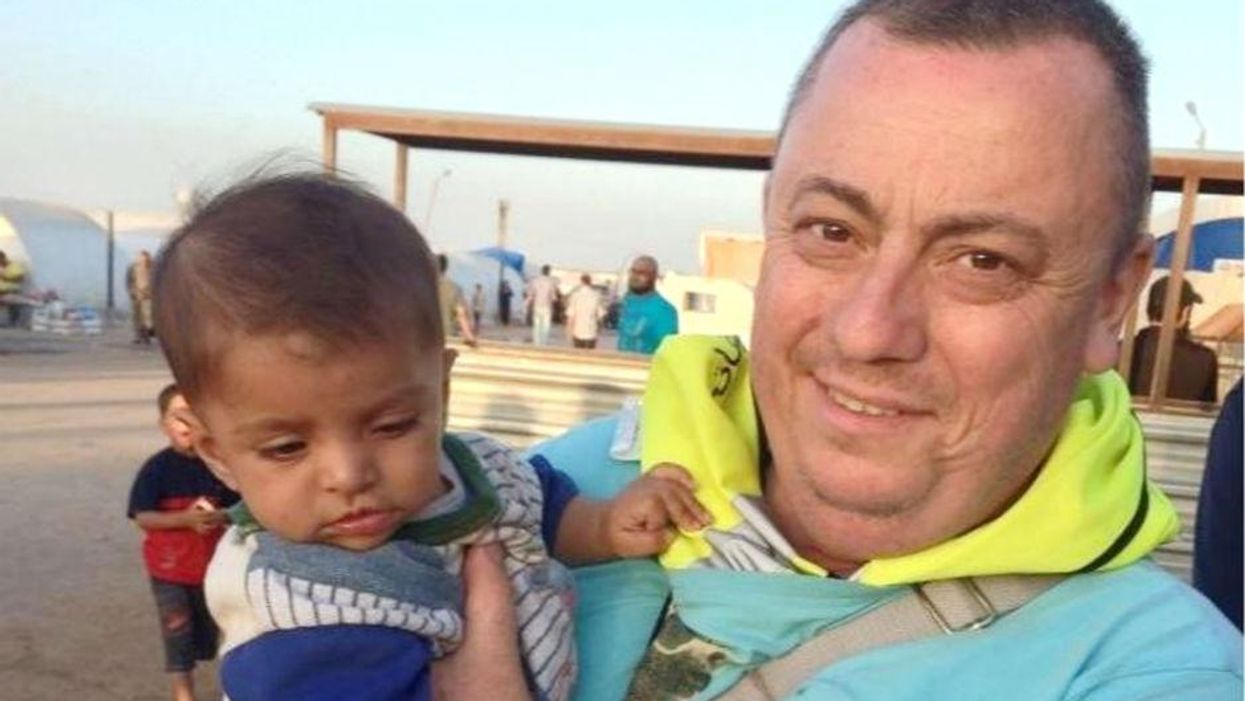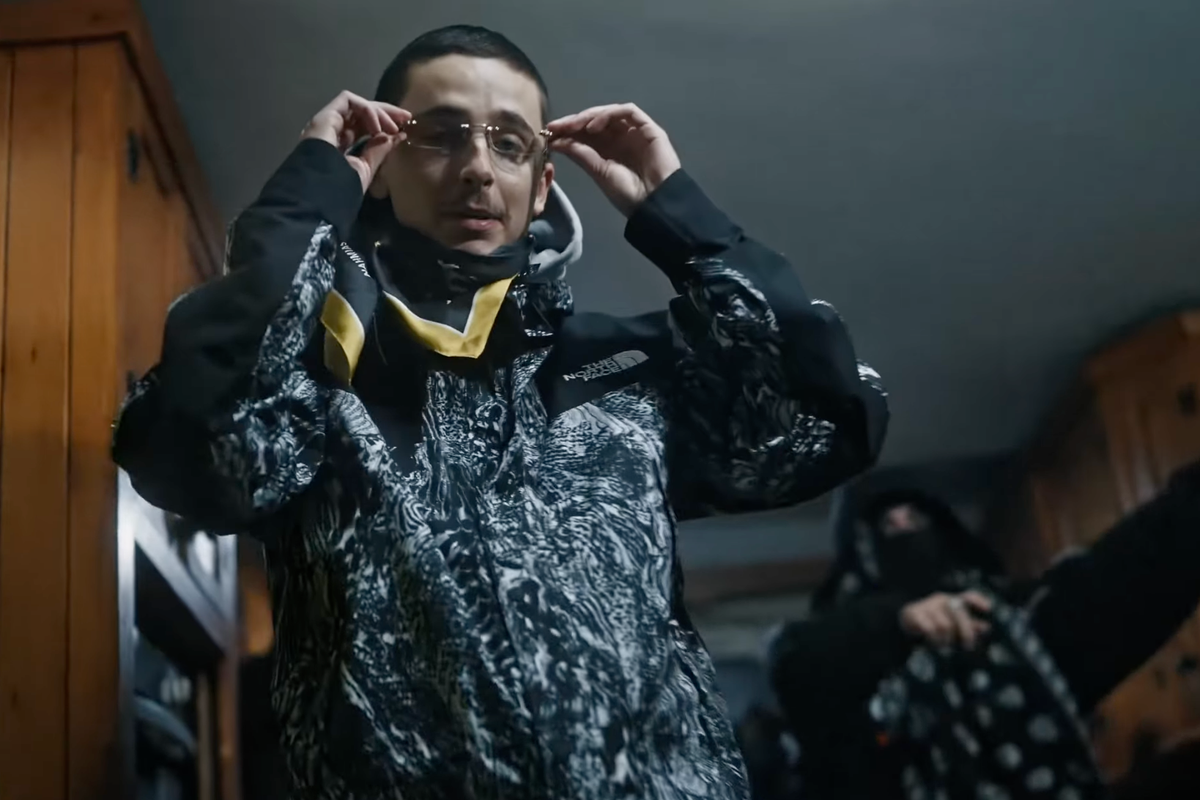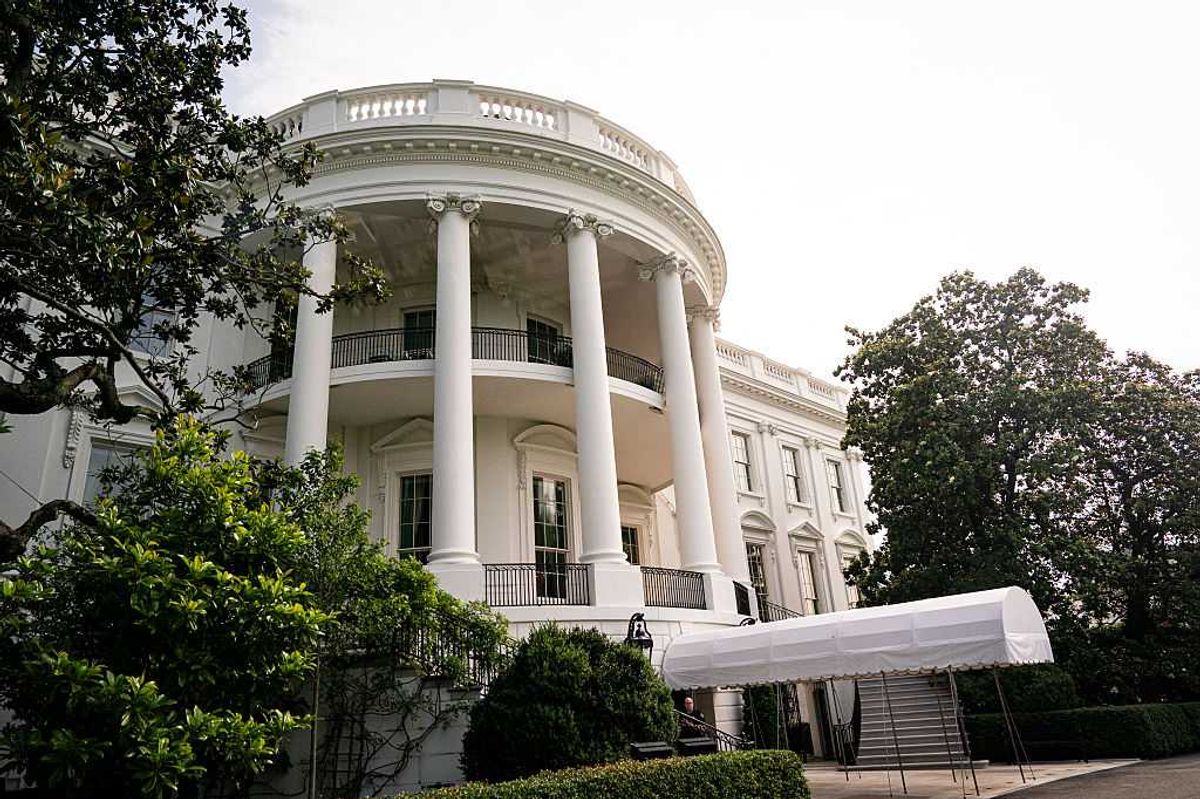News
Evan Bartlett
Sep 15, 2014

This photo of Alan Henning, at a refugee camp on the Turkey-Syria border, was released by his family
Alan Henning, a 47-year-old taxi driver from Salford, has been named as the second British hostage whose life is under threat from Isis militants, who call themselves the Islamic State.
The Briton was working as part of an aid convoy in the north-western Syrian town of Ad-Dana when he was captured by the militant group - it was his second trip to the troubled state as a volunteer.
He had been warned not to travel in to the country from his base in Turkey because - as a white, non-Muslim man - he would stand out too much.
But because of his dedication and determination to see that the aid was being distributed in the correct manner and received by those in need, he chose to travel anyway.
A photograph of Mr Henning at a refugee camp on the Turkey-Syria was released by his family, something the Foreign Office often advises against.
As the i paper's editor Oliver Duff explains in today's edition:
Very occasionally the Foreign Office will ask newspaper editors not to reveal the identity of a hostage, with the explicit warning that doing so could increase the danger to their life. Only a reckless editor would rush to print in such circumstances.
Limiting publicity can help to minimise the propaganda impact of kidnappings, although this must be balanced against the need to pressure government officials to help a captive.
Following the murder of David Haines, another British aid worker, alongside those of American journalists James Foley and Steven Sotloff in the past month, the boundaries for publishers have become blurred - particularly with graphic photos, videos and the identity of hostages spreading rapidly on social media.
The i paper, alongside i100, have chosen not to publish pictures of Haines, Foley and Sotloff in orange robes in states of severe duress, and will continue to abide by that principle alongside other Foreign Office guidance.
In the instance of identifying Mr Henning, an exception has been made owing to his family's wishes.
As our i paper editor fittingly puts it: "Alan Henning’s family want you to see a photo of him, not as a hostage, but as a human being devoted to helping others. That is the least that we can do."
More: Remember David Haines for his unfaltering humanitarian work
More: This is who Steven Sotloff was and this is how we should remember him
More: Remember James Foley for his fearless war reporting
Oliver Wright: Was a news blackout on Isis hostages the right option?
Ian Birrell: Ransoms? Raids? Media black-outs? What should the strategy be?
Top 100
The Conversation (0)













